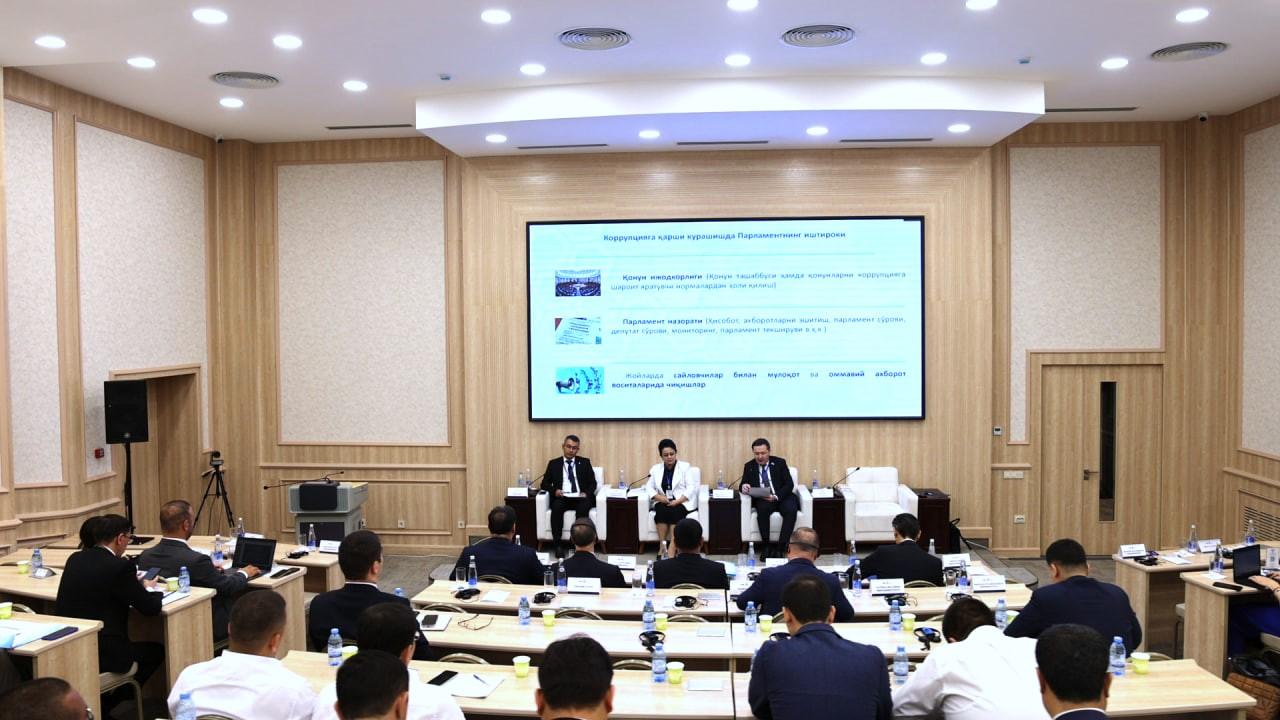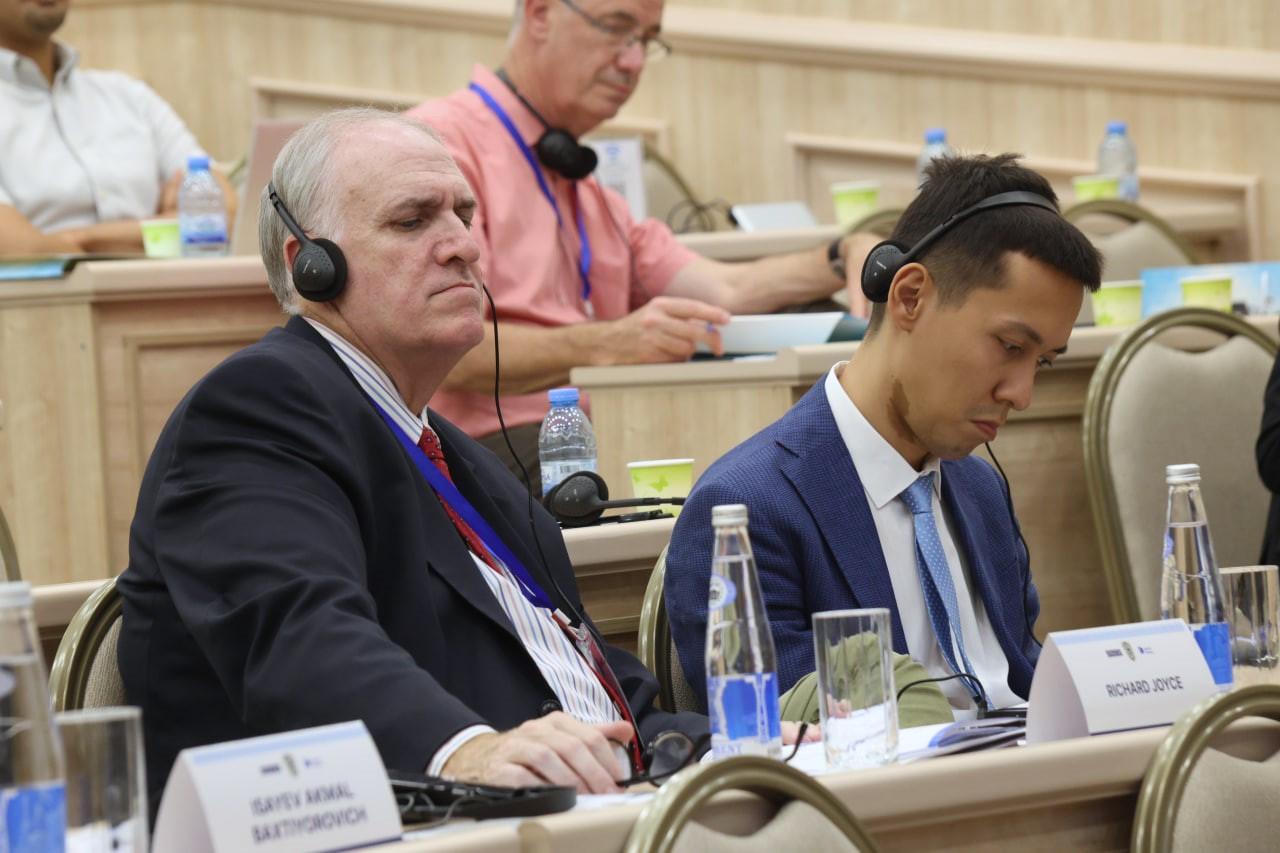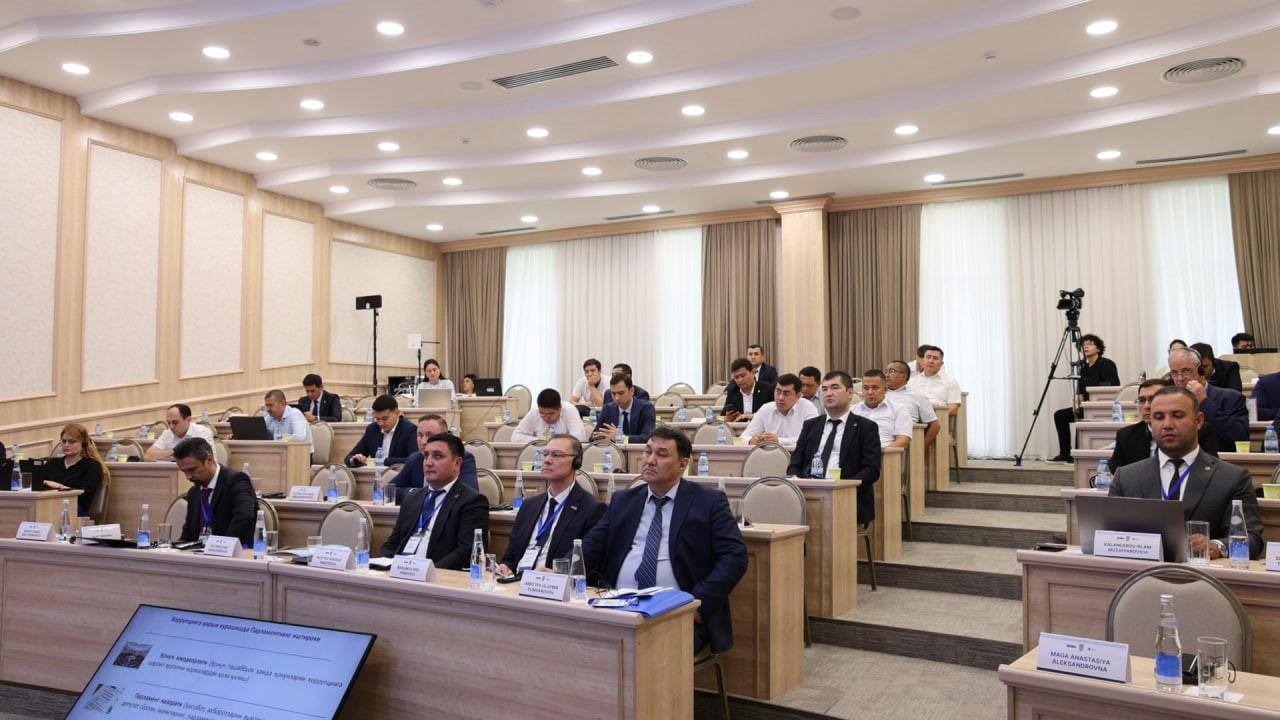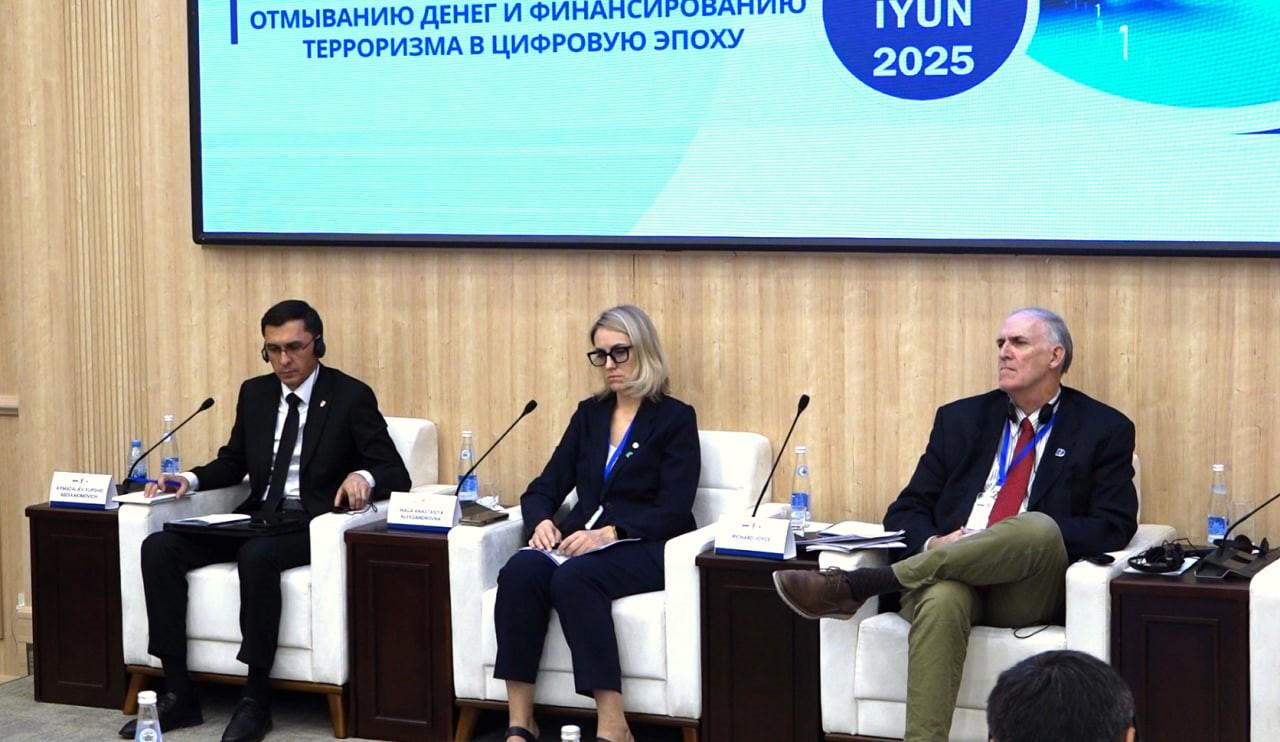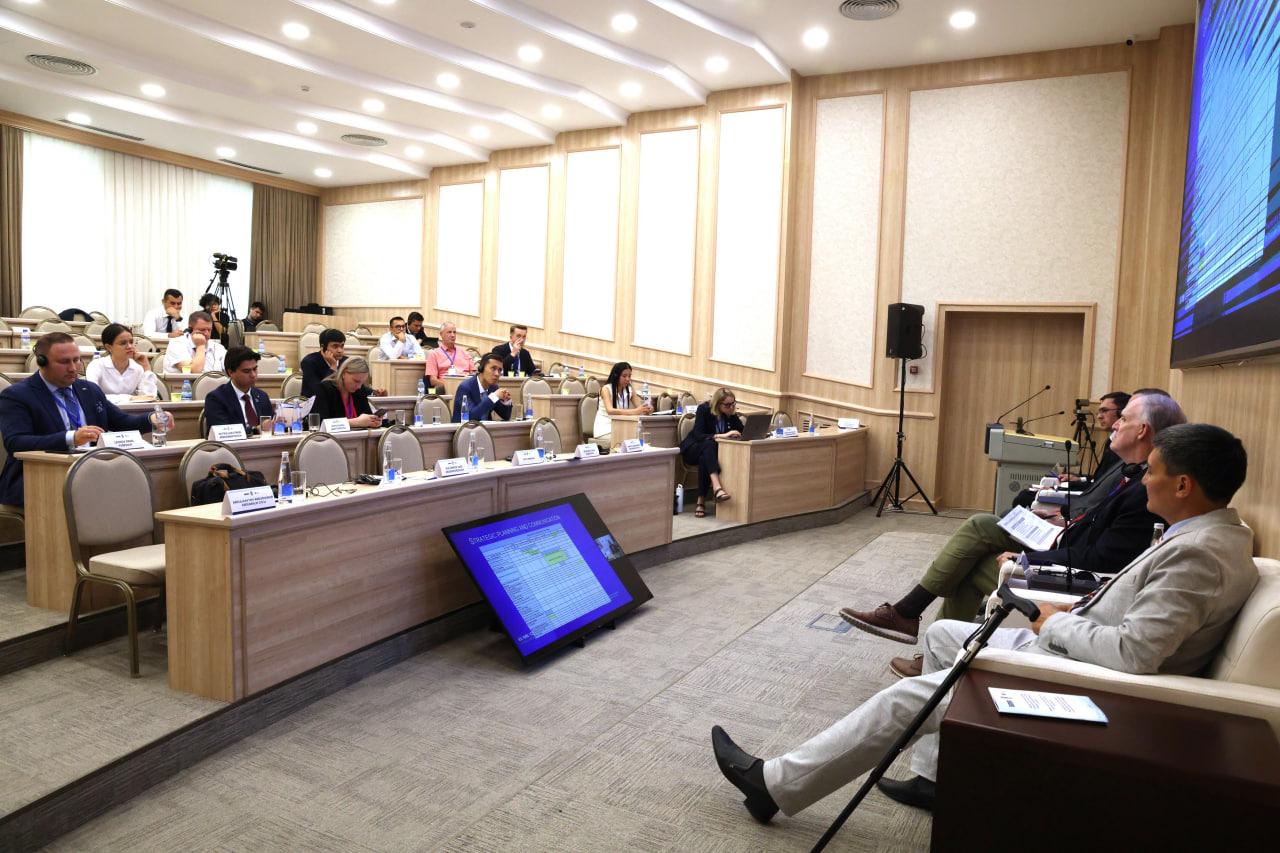Parallel Session: “Combating Corruption, Money Laundering, and Terrorist Financing: Modern Challenges and Trends”
As part of the international scientific and practical conference “Modern Challenges and Threats in Law Enforcement Activities in the Era of Digital Transformation” held at the Law Enforcement Academy, a parallel session was organized on the theme of “Combating Corruption, Money Laundering, and Terrorist Financing: Modern Challenges and Trends”.
The session was conducted in a mixed format and divided into two sections — one focusing on combating corruption and the other focusing on combating money laundering and terrorist financing.
In the first part, “Combating Corruption: Modern Challenges and Trends”, international experts and specialists with extensive scientific and practical experience in this area participated, including representatives from the Independent Commission Against Corruption (ICAC, Hong Kong), the National Anticorruption Directorate (DGA, Romania), the National School of Magistracy (ENM, France), the Asset Recovery Committee (Kazakhstan), as well as representatives from the United Kingdom, Latvia, Pakistan, Slovenia, and other countries, along with experts from the UN Office on Drugs and Crime (UNODC), the Regional Dialogue International NGO, the CERT International Academy, and other international organizations.
National authorities and institutions of the Republic of Uzbekistan were also represented, including committees of both chambers of the Oliy Majlis responsible for anti-corruption and judicial-legal matters, the General Prosecutor’s Office, the Anti-Corruption Agency, the Accounts Chamber, the Tashkent State University of Law, and other academic and educational institutions.
During the session, the experts introduced participants to international standards and advanced foreign scientific and practical experience. They spoke about topics such as the role of modern information technologies in combating corruption and the recovery of illegal assets, new threats and challenges related to corruption in the digital era, the role of artificial intelligence in its prevention, and international best practices.
This session aimed to deepen participants’ knowledge and skills in applying international standards, advanced global practices, and modern scientific approaches in the prevention of corruption and related threats.
The second part of the session was dedicated to the topics of money laundering and terrorist financing.
The session featured the participation of representatives from the UN Economic and Social Commission for Asia and the Pacific, the UN Office on Drugs and Crime, the EU Global Fund Against Money Laundering and Terrorist Financing, the Regional Dialogue International NGO, as well as representatives of authorized bodies and academic institutions from the United Kingdom, Qatar, and Kazakhstan.
The session focused on topics such as the role of professional intermediaries in money laundering, challenging aspects of identifying and addressing money laundering, measuring and combating illegal financial flows, and the use of crypto-assets in money laundering and terrorist financing.
In this context, the representative of the Qatar Financial Intelligence Unit presented the essence of the FATF Guidance “Opportunities and Challenges of New Technologies for National Anti–Money Laundering and Counter–Terrorist Financing Systems”, highlighting the role of artificial intelligence in making digital developments more effective for identifying threats and responding to suspicious activity.
Additionally, during the conference, a Memorandum of Understanding was signed between the Law Enforcement Academy, the Central Bank, and the Department for Combating Economic Crimes to foster cooperation in the fields of anti–money laundering, combating terrorist financing, and countering the financing of weapons of mass destruction.

